Companion planting with your potatoes can help your plants grow better, taste better, and have less problems with pests. So how does companion planting work? What can you grow with your potatoes and what should be kept far away?
First off, potatoes are a member of the nightshade family. Other nightshades include tomatoes, eggplants, and peppers.
This site contains affiliate links. If you make a purchase using one of these links, I may earn a commission. Please see my disclosure page for more information about cookies collected and our privacy policy.
Below you will find a list of potato companion plants that you can grow alongside your potato plants to prevent pests and disease, or just help them grow and taste better. Plus a list of what you should keep separate from your potato bed.
Pick up a copy of my Companion Planting Guide and Binder to help you design the perfect garden beds with companion planting in mind. Everything you need to know about companion planting in an easy to read format so you can start companion planting sooner!
Potato Companion Plants For a Better Harvest
Companion planting has a lot of benefit including improved flavor and better growth. It’s important to plant crops that don’t compete for nutrients and also complement each other. Below is a list of plants to grow with your potatoes to help you grow the best potato crop ever!
Corn: Growing corn with potatoes improves the flavor of potatoes, making them great companions!
Beans: Beans won’t compete for nitrogen in the soil, instead they will fix nitrogen, making it more readily available for the potatoes. They help the plants grow stronger and healthier. Bush bean varieties are a better choice.
Cabbage: Cabbage is another crop that helps improve the taste of your potato crop.
Lettuce: Lettuce is a shallow-rooted plant that potatoes grow well with. They don’t compete for the same nutrients, and the potatoes can shade the lettuce in the heat of the afternoon.
Herbs: Planting herbs such as basil, chamomile, yarrow, parsley, and thyme will improve the flavor of your potatoes. They will also attract beneficial insects to your garden to help with pest control and pollination.Learn more about using herbs as companion plants.
Horseradish: Planting horseradish around your potato plants can help your plants be more resistant to disease, and it can improve the flavor of the potatoes as well.
Potato Companion Plants for Pest Control
Pests can be a big problem in organic gardens, or any garden, but luckily one of the main benefits of companion planting is to naturally deter and eliminate many of these pests. Below are some of the best companion plants for potatoes to help control some of the main potato pests.
Sage: Planting sage around your potatoes can help keep the flea beetles away.
Nasturtium: Nasturtium is a great companion for a lot of different crops, so I highly suggest planting in various places around your garden. For potatoes, nasturtium can help deter the Colorado potato beetle.
Tansy: The potato beetle is one of the most harmful insects for potatoes. Luckily there are lots of companion plants for potatoes that help deter them!
Bush beans: Green Beans are another crop to grow with potatoes to deter the Colorado potato beetle. As I said above they also add nitrogen to soil to help the potato plants stay strong. And if that wasn’t enough potatoes help repel Mexican bean beetles, which can destroy your bean crop.
Marigold: Marigolds can deter all sorts of harmful insects- for potatoes and other crops. Plant them in every bed! (They can also protect your potatoes from some viral infections)
What to Avoid Planting With Potatoes
Potatoes are a little more picky when it comes to good companions. Not only can many plants have negative effects on the growth and development of the potato tubers, but potatoes can have negative effects on the other plants as well. Here’s a list of some plants you should keep away from potatoes.
Carrots: Carrots, and other larger root crops such as onions and turnips, can affect the growth of your potatoes.
Asparagus: Asparagus can stunt the growth of your potatoes- so keep your permanent asparagus bed in another area of the garden.
Squash and Pumpkins (including zucchini): Squashes can make potatoes more susceptible to blight (and potatoes can have the same effect on them!) If you do end up with blight, check out my article on preventing and controlling blight.
Cucumber: Like with squashes blight can be an issue if you companion plant cucumber with potatoes.
Melons: Are you noticing a trend? Squash, cucumber, and melons are all cucurbits- and none of them should be planted with potatoes.
Tomatoes: Planting tomatoes and potatoes together is a bad ideas. Potatoes and tomatoes compete for the same nutrients in the soil. Planting them together also makes both crops more susceptible to blight.
Also don’t plant potatoes where other nightshades have been planted previously. Keep at least a 2 year rotation before planting nightshades in the same spot again.
Sunflower: Sunflowers can stunt the growth of your potato plants and the tubers.
Other plants to stay away from in your potato bed: celery, raspberries, fennel, onions, and turnips.
Once you have harvested your potatoes, check out some of the following articles to learn how to store, use, and preserve your harvest!
How to Cure and Store Potatoes
And that’s it for companion planting with potatoes. Take this information into account while planning your garden in the spring and you will see the benefits of companion planting!
Check out my other companion planting guides too to learn the companion plants best suited for Squash, Eggplant, and Cucumbers!

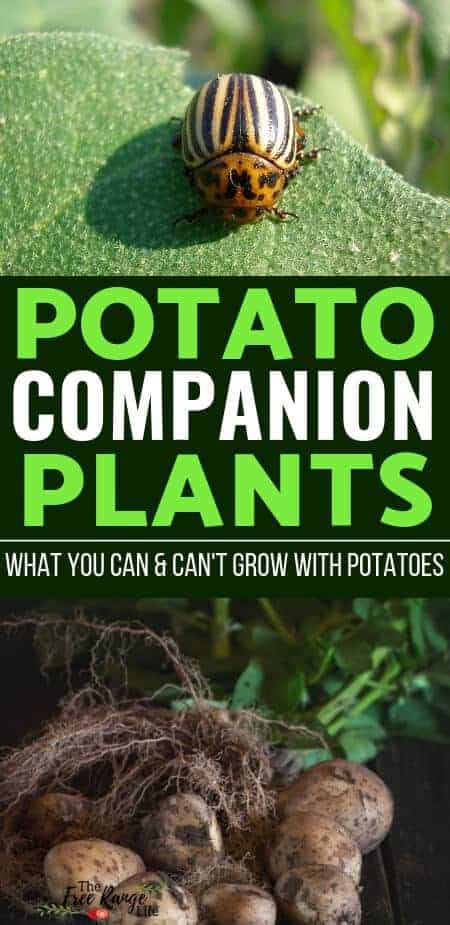
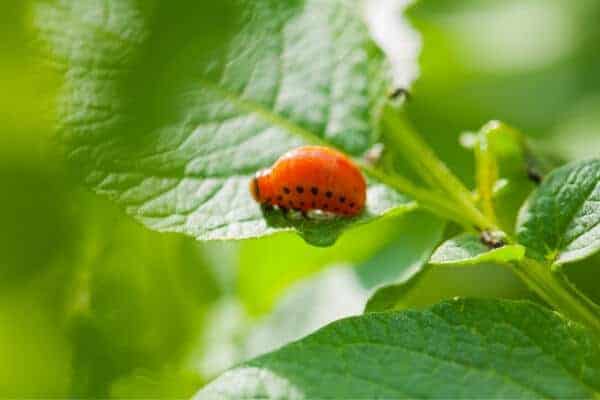
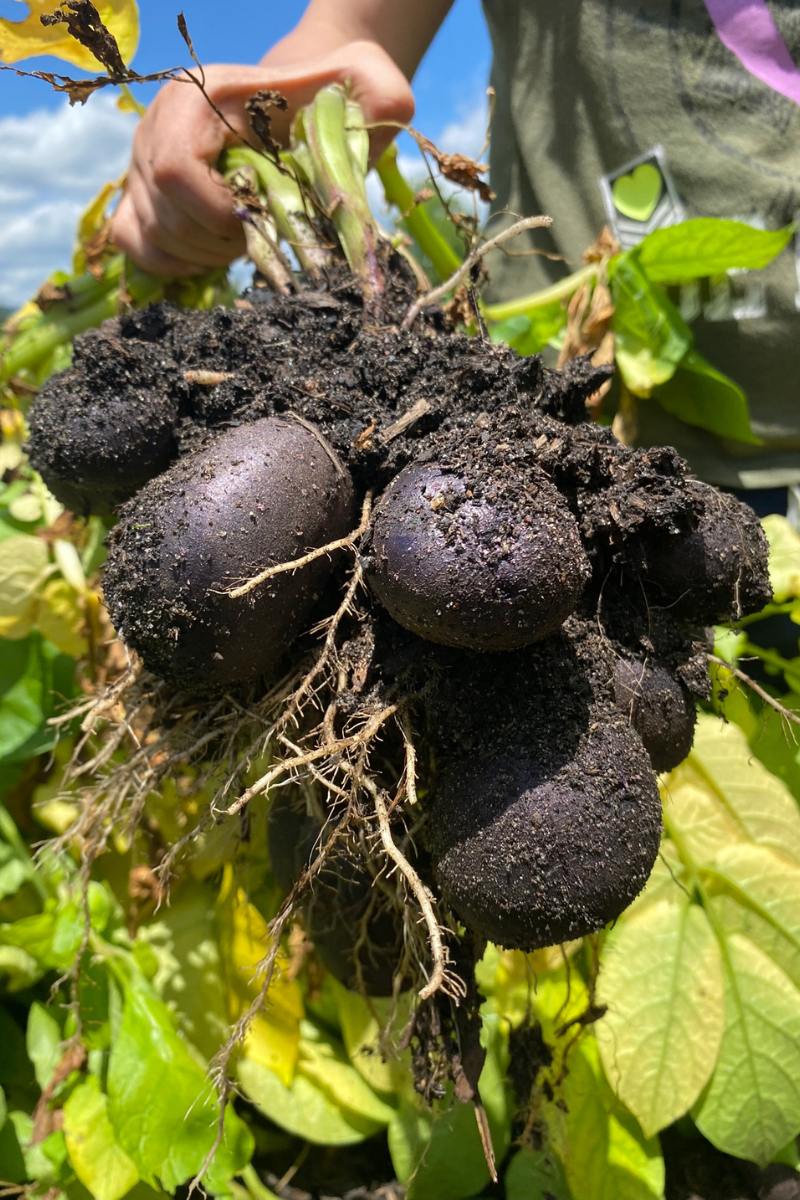
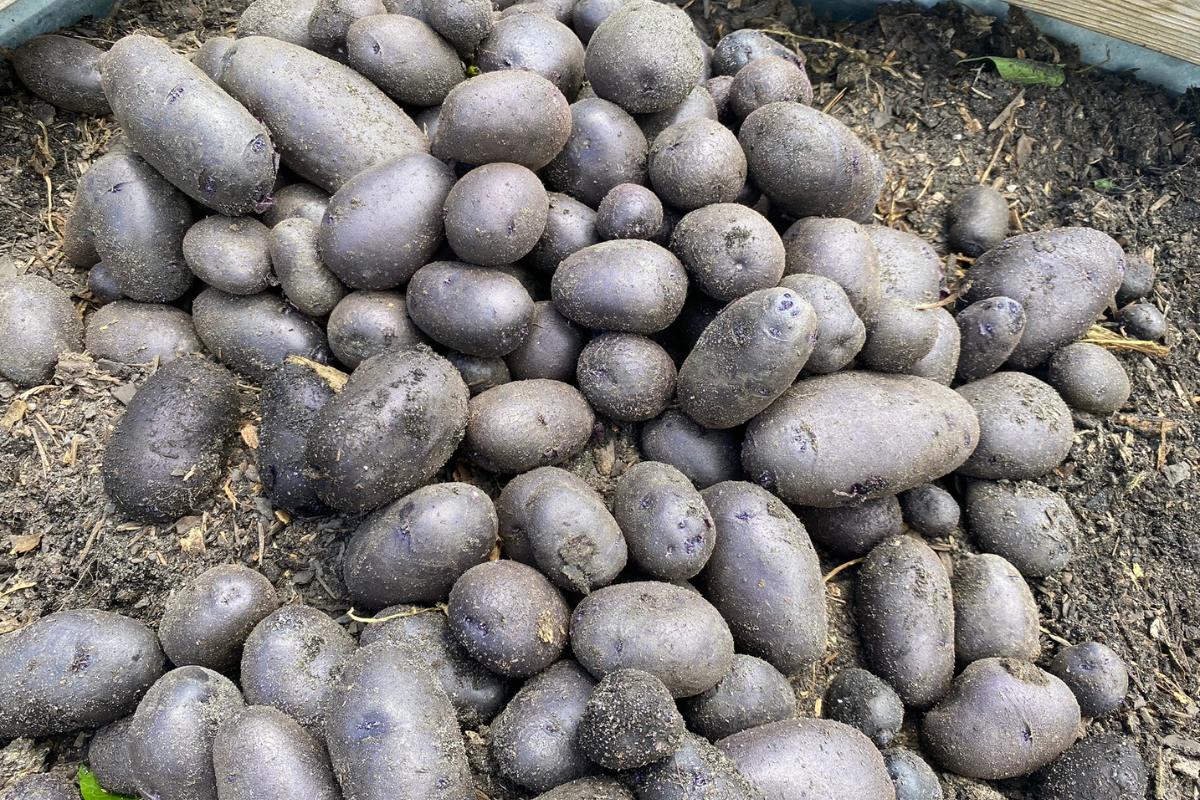

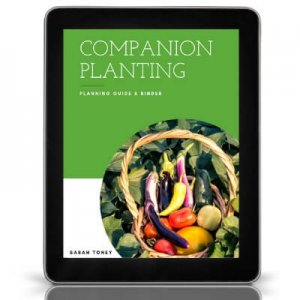
It look interesting. I would like to learn more. Thank you.
No wonder I can’t get my potatoes big or abundant..thank you.
Thanks. Good traf.
Any help with potato scab ?
Do peas or green peppers work in the same bed as potatoes?
When you say keep away from certain other plants how far away are you referring to? I am using containers.
When we are talking about things that can cause blight, the more space the better. For things like roots, and crops that can stunt growth, if they aren’t sharing the same soil (ie. in a container) then they should be fine near each other since their roots won’t be intermingling.
NOT in the same container
Thank you V.good information
I learn a lot from your advice thank you
Any idea how to get rid of blight out of your garden from year to year I have had it for 2 years open to suggestion
What about garlic?
Thank you!
This is a very interesting article! Thanks for sharing a lot of information.
Is there any companion plants to help against potato scab ?